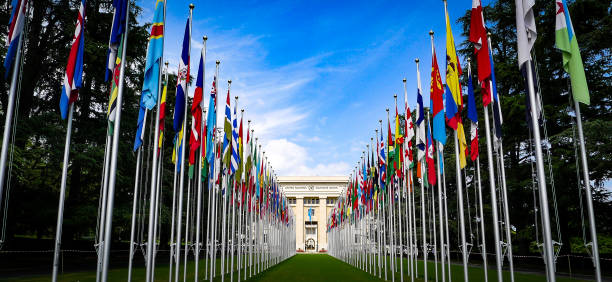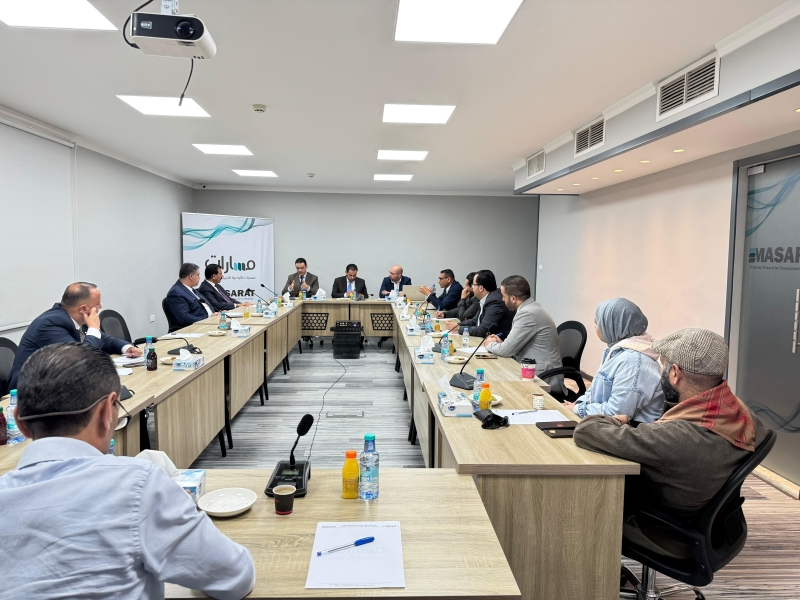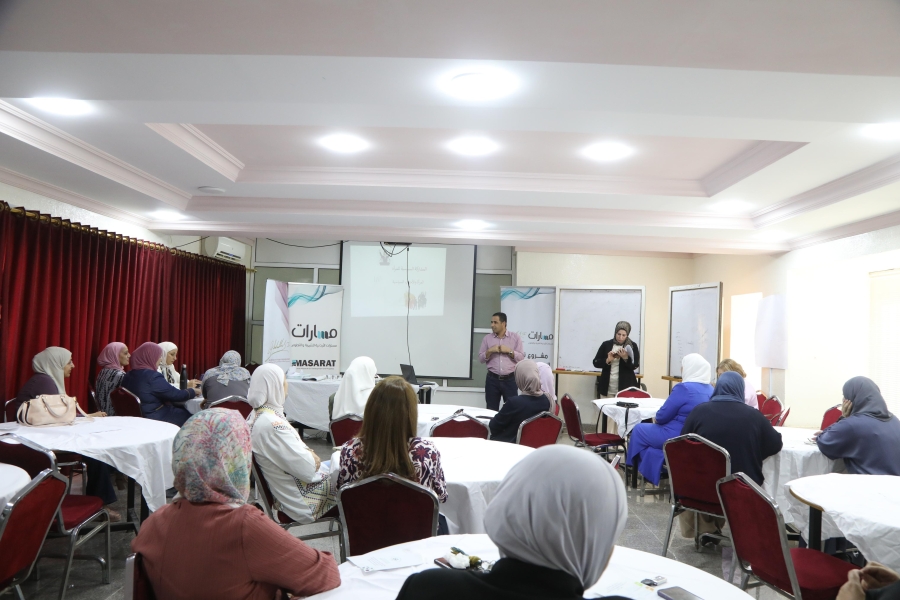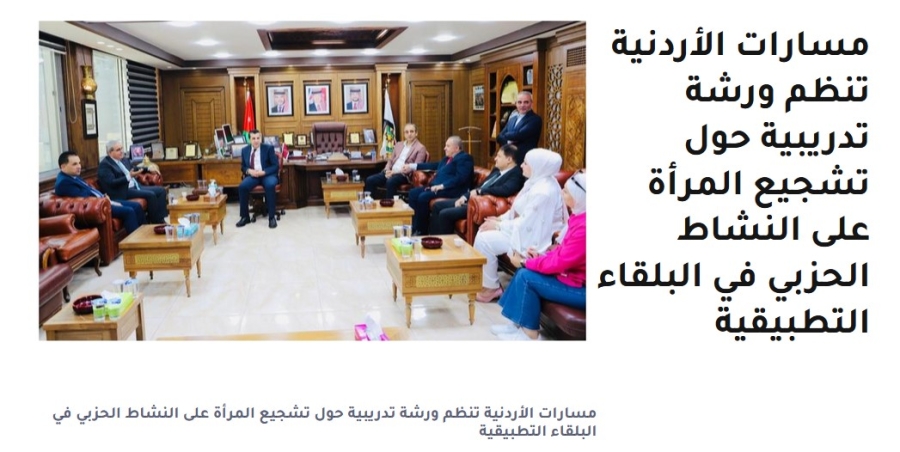Opening of the project “Training academic women on party work in universities
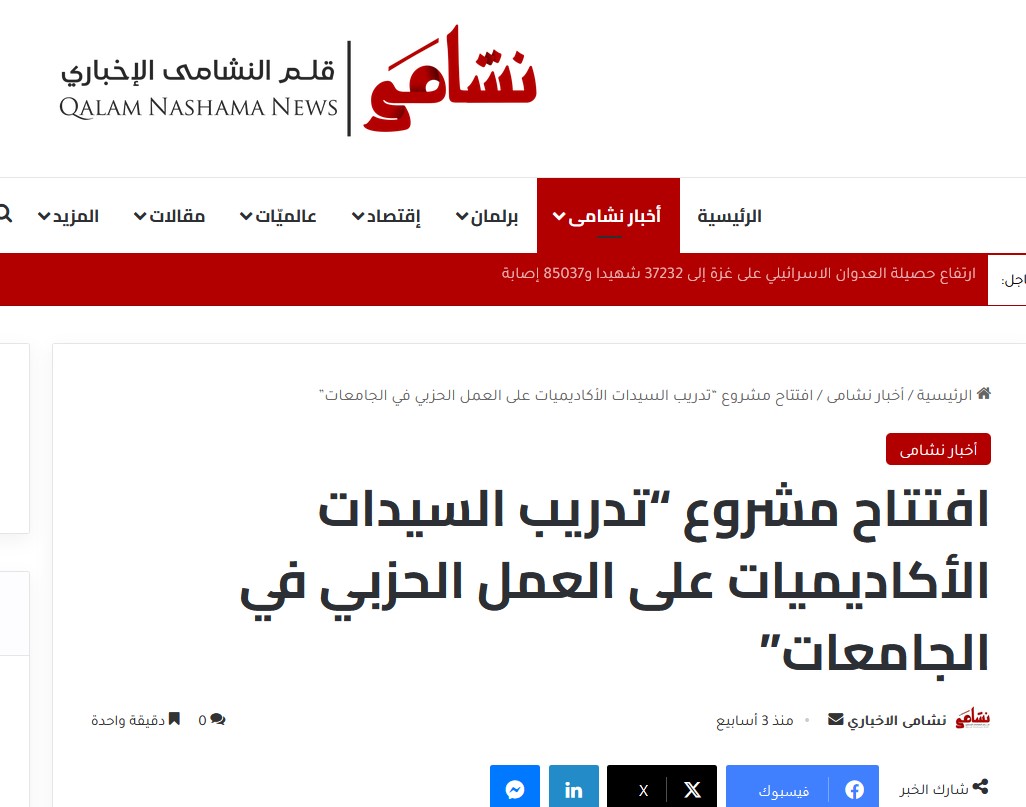
Launch of the "Training Female Academics on Party Work in Universities" Project
This initiative is funded by the King Abdullah II Fund for Development, reflecting its commitment to enhancing women's pivotal role in society and empowering them in academic and political sectors.
Engineer Musa Al-Maaytah emphasized the importance of joining political parties and underscored King Abdullah II’s vision for transitioning from individual to collective work through political parties. He added that collective work is structured and essential for the success of all initiatives.
Al-Maaytah also highlighted the need for women to assert their voices and prove their abilities in political participation, stressing that collective work is the key to realizing their ambitions and strengthening their standing alongside men.
Dr. Anis Al-Khasawneh stressed the need to build trust in Jordan’s political landscape and instill confidence in students to exercise their right to vote and join political parties. He mentioned that specific mechanisms and procedures have been developed to regulate and facilitate student participation in political activities while maintaining order within educational institutions.
He further noted that women constitute one-third of teaching staff and half of administrative staff in educational institutions. Women, he said, need political awareness and party education, which institutions can provide through workshops, seminars, and forums to empower them to reach parliament and senior leadership positions.
Dr. Al-Khasawneh pointed out that the upcoming parliament is expected to feature between 20% and 25% female representation, indicating a significant presence of women in Jordan's House of Representatives.
Ali Al-Khawaldeh, Secretary-General of the Ministry of Political and Parliamentary Affairs, remarked that women's political participation in Jordan remains a societal challenge. While Jordanians generally accept women in various fields, their role in political life continues to face hurdles, both at the family and societal levels, despite their demonstrated leadership abilities.
Al-Khawaldeh added that the legislative environment has created new positive political opportunities for women, increasing their representation through quotas from 11% to 20%. However, he also highlighted cultural and social challenges women face in political life, including self-confidence in competing with men and achieving leadership positions, as well as gaps in political and party experience among women.


